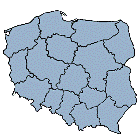Tytuł wydany w wyniku współpracy Davide Artico (Uniwersytet Wrocławski) oraz Brunello Mantell'ego (Uniwersytet Turyński). Książka pojawiła się dzięki wkładowi finansowemu Italian Culture Institute of Cracov. Zawiera materiały konferencji, która odbyła się w Brescii 23 Maja 2008 roku. Publikacja w języku angielskim.
The European post-war reconfiguration proved to be in fact a real failure, not only because, in the light of the Wilsonian programme, it was thought to draw boundaries where these, due to the ethnic, cultural and linguistic diversity, were not traceable, but even because, sacrificing the principle of national self-determination on the altar of imperial interests, it came to create those fatal conditions from which Fascism, Nazism and Stalinism would soon establish their respective revisionist strategies.
Dr. Federico Trocini,
Italian-German Historical Institute, Foundation “Bruno Kessler”
Trento, Italy (peer reviewing)
The years following the First World War are generally referred to as the ‘interwar period.’ Such a definition suggests that the period was predominantly peaceful, with no noteworthy military conflicts. The book edited by Davide Artico and Brunello Mantelli shows this appearance to be misleading. Though ‘swallowed’ by the long shadow of the First and the Second World Wars, military confrontation in the Baltic area, in Silesia, and along the border between Italy and Yugoslavia proved at times to be very ferocious. The new European order established after the Versailles Treaty had serious shortcomings, and it was bound to collapse in the late 1930s.
Dr. Thomas Schlemmer,
Institute of Contemporary History, Munich
and University of Tübingen, Germany (peer reviewing)





